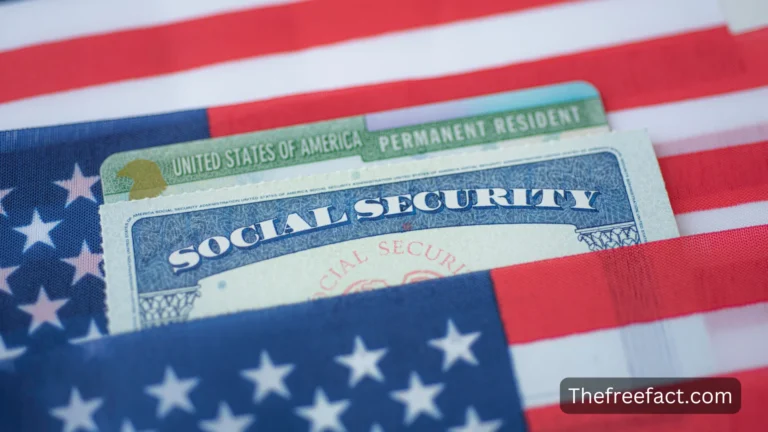What are FICA Taxes? Is FICA Social Security?
People often wonder whether FICA is the same as Social Security when they see the term “FICA” on their pay stubs. While FICA covers Social Security, it is not limited to it. Having a good understanding of how FICA works and how it interacts with Social Security is crucial for both employees and employers.
What are FICA Taxes?
It comes from the 1935 Social Security Act (SSA) and is derived from the Federal Insurance Contributions Act (FICA) that helps employees fund future Social Security benefits after retirement.
FICA taxes nowadays include Medicare taxes in addition to the original Social Security tax (also called OASDI or Old Age, Survivors, and Disability Insurance). Taxpayers who pay these taxes are entitled to retirement benefits, disability benefits, and life insurance benefits after age 62.
Is FICA Social Security?
In most cases they are not, but they are closely connected. FICA, the Federal Insurance Contributions Act, is the tax that largely funds Social Security. It also provides a large portion of Medicare’s budget. Old-age, survivors, and disability insurance taxation, also known as Social Security taxation, and hospital insurance taxation, or Medicare tax, are part of the Federal Insurance Contributions Act (FICA).
It is common for workers to have FICA taxes deducted directly from their paychecks. Social Security deductions are 6.2 percent of an employee’s gross pay, up to the maximum taxable earnings threshold. That threshold will be $176,100 in 2025; earnings above that threshold will not be taxed. As national wages change, the cap is adjusted annually. Employers are also required to match 6.2 percent of Social Security contributions.

What is the FICA tax payer?
All employees and their employers are required to pay FICA taxes in the same manner as income and unemployment taxes. However, unlike income and unemployment taxes, FICA taxes are paid jointly by both employees and employers. A half-share of the overall amount sent to the federal government is contributed by each side, though some exceptions apply.
Also check: Is Medicaid Waiver Income Counted As Social Security Income?
Tax Exemptions from FICA
FICA taxes aren’t imposed on wages of certain individuals. For instance, students employed by their universities or schools while enrolled there do not have to pay FICA taxes. Nonresident aliens who fall into the following categories are also exempt from FICA taxes, according to the Internal Revenue Service (IRS):
- Persons who earn their salaries through their official role in a foreign government.
- Salaries paid to employees of international organizations as a result of their official responsibilities.
- Members of a ship’s or aircraft’s crew from foreign countries or who perform services outside the United States.
- USCIS allows students, scholars, professors, teachers, etc., to perform certain services, such as teaching on campus.
- Work performed by nonimmigrants on a temporary basis in agriculture.
- Philippines residents performing services on Guam.
Depending on the employee’s citizenship, certain wages are also exempt from FICA taxes, including:
- Anly ordained, commissioned, or licensed minister of a church
- A parent’s gift to a child under 18
- In exchange for mileage reimbursements
- In the case of nursing students
Workers who are self-employed
Employees who are self-employed or independent contractors are still required to pay Social Security and Medicare taxes, but under a separate law known as the Self-Employed Contributions Act (SECA).
Self-Employed Taxes, while using the same Social Security and Medicare rates as standard FICA taxes, do not require the self-employed to share in the cost of these taxes since they do not work for anyone else. Whenever they receive a paycheck, they must pay Social Security and Medicare taxes in full.
What is the formula for calculating FICA taxes?
Employers and employees share the amount of FICA taxes owed each pay period. The current FICA tax rate is 15.3% of gross wages, but only half of that amount is paid by employees, and the other half is paid by employers.
Half of each half of the 15.3% is allocated to Social Security (or 12.4%), and the other half is allocated to Medicare (or 2.9%).
| Tax | Paid by Employee | Paid by Employer | Total Tax Rate |
| Social Security | 6.20% | 6.20% | 12.4% |
| Medicare | 1.45% | 1.45% | 2.90% |
| FICA Taxes (total) | 7.65% | 7.65% | 15.30% |
A $2,000 gross monthly wage will lead to $306 in IRS taxes (2,000 x 15.3%) under today’s FICA tax rates. Employees are responsible for half of the total ($153) and employers for the other half. Among the total amount, $248 goes to Social Security (2000 x 12.4%) and $58 goes to Medicare (2000 x 2.9%).
Wage Base Limits
As of 2025, FICA’s Social Security tax rate can only be applied to an employee’s wages up to $176,100.
A worker who earns $180,000 in a calendar year, for example, will only have to pay FICA taxes on the first $176,100 of their wages. Once that wage base limit is met, the rest of the employee’s salary is not subject to FICA taxes.
Charges for additional taxes
The FICA’s Medicare tax has no wage base limit, but employees have to pay an additional Medicare tax if their income exceeds a certain level. Those who earn over $200,000 per year and file their tax returns as individuals owe an additional 0.9% in Medicare taxes.
The additional tax also applies to married employees who file jointly and earn more than $250,000 annually or file separately and earn more than $125,000 annually.
FICA FAQs
Do FICA taxes have to be paid?
The Social Security and Medicare taxes must be paid by every employee on every paycheck.
Is there an exemption from FICA taxes?
In some cases (such as for students and some nonresident aliens) or wages (such as mileage reimbursements), FICA taxes are not owed.
How much does FICA tax currently cost?
By 2025, 15.3% of employees’ wages will be subject to FICA taxes, of which 12.4% will be for Social Security, and 2.9% will be for Medicare.
How are FICA taxes different from income taxes?
Employees are responsible for paying FICA taxes; employers are responsible for collecting and paying the income taxes on their behalf. Federal income taxes are paid only by employees.
Is FICA tax the same as Social Security tax?
The FICA tax includes both Social Security and Medicare taxes.
Is FICA tax withheld from your self-employment income?
There is a self-employed tax, but it is governed by SECA rather than FICA. SECA has the same rates and calculation as FICA, but self-employed workers must pay the whole amount themselves since they don’t have an employer to share tax responsibilities with.







